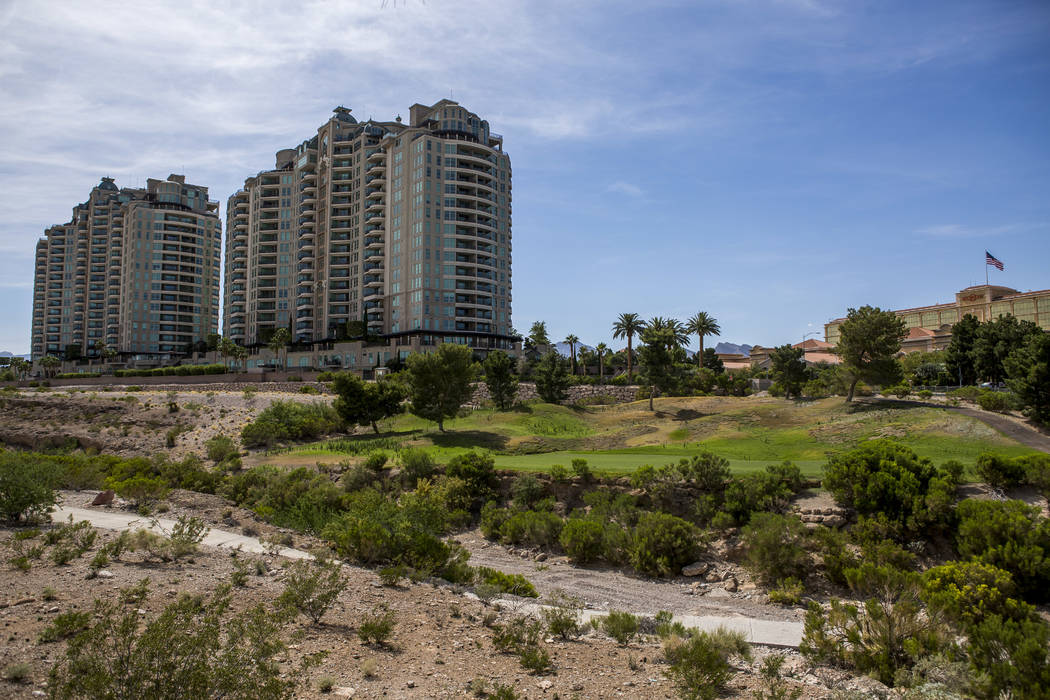BOB BEERS: Time is now to resolve Badlands dispute
A U.S. Supreme Court ruling last month could have a big impact on the old Badlands golf course and, eventually, Las Vegas taxpayers.
The golf course failed in 2013. Las Vegas real estate visionary Yohan Lowie then bought the land and applied to the City of Las Vegas to build homes. After an exhaustive review of historical records and the law, both the city attorney and the Planning Department agreed that the land was still zoned residential from the last action the City Council took. Yes, it was 20 years ago and all of the council members at that time are no longer serving. But zoning, once granted, doesn’t change.
The prior zoning created a legal obligation for the City Council to approve the plan for homes — most of the land was to be carved into parcels larger than an acre. Two years ago, the City Council instead voted to deny the zoning. It then passed an ordinance ensuring that the land would remain barren and vacant. That’s how it sits today.
It turns out the law says if your government has given approval via zoning, even 20-year-old residential zoning, then that zoning is an asset, separate from the underlying land. Just like your car, your home, or your bank account, the government cannot take your property for a public purpose without due process. Even with a public purpose, the government must pay you for what it takes from you.
So Lowie and his partners filed suit. All American courtrooms have been consistent — when government takes away favorable zoning, it must write them a check. In Lowie’s case, the taking was not condemned for any public purpose.
Here’s where the Supreme Court’s recent ruling in Knick v. Township of Scott, Pennsylvania, comes into play.
Law professors had two theories on taking cases. First, that lawsuits such as Lowie’s had to be settled in state court first because they related to the actions of a local government described and controlled by state law. The second theory held that lawsuits such as Lowie’s should bypass state courts and go straight to federal court.
Last month, the Supreme Court agreed with the second theory. That means Lowie can skip the state’s elected judiciary and go straight to federal court, where a decision by a state judge would be appealed.
It seems likely the City of Las Vegas will lose this lawsuit, as it follows well-established fact patterns. Under this ruling, it will lose even faster by avoiding a 10-year trip through state courts before finding ultimate justice. The shortening might be an improvement for taxpayers, as it will cut 10 years of steep annual interest payments mandated by federal courts in such cases. As Las Vegas land gets more valuable with every passing year, the base amount of the damages might increase if there was no public purpose in the taking.
An even better outcome for taxpayers would be for the new Las Vegas City Council to reverse the earlier decisions and negotiate a peaceful, fast and less expensive settlement with Lowie.
Dave Breemer, an attorney at the Pacific Legal Foundation, wrote of the recent Supreme Court ruling, “The Court’s decision to reject barriers that unfairly deny property owners their day in court sends a message that property rights are just as sacred as all other rights. … Property owners should now receive a prompt and fair federal hearing, when the government takes their property for public use, but fails to pay compensation.”
The key members of the Las Vegas City Council who voted us down this path are out of office now. This Las Vegas City Council needs to reverse course and settle with these property owners peacefully, quickly and inexpensively.
— Bob Beers previously served as Las Vegas City Councilman for Ward 2.

















